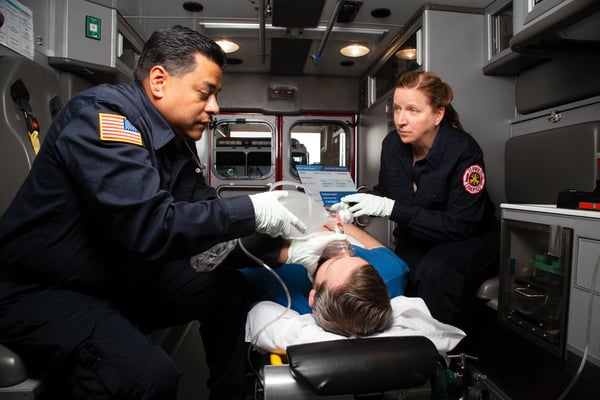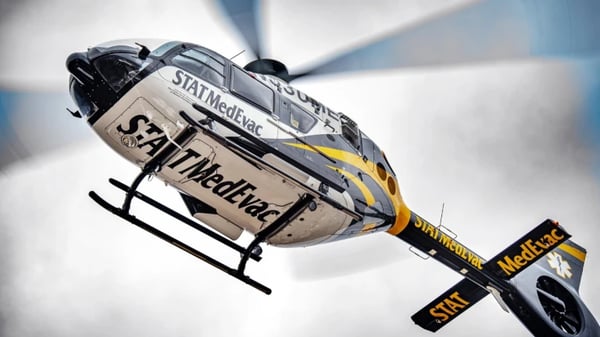News Alert: New ePCR Integration Simplifies EMS Data Management and Enables Better Care Coordination
How EMS Teams Can Reduce the Cognitive Workload Within the Pediatric Chain of Survival
An important discussion about the strains, risks, and other challenges EMS professionals face with pediatric care

Emergency medical service (EMS) providers play a huge role in the chain of survival for pediatric patient outcomes. Approximately 1.14 million 911 calls every year involve pediatric cases, or 15% of all EMS encounters. Of these, 2% are critical cases.1 These calls are high-stress events, as they require precise, specialized care; high cognitive engagement; and may result in emotional strain during and after the call due to the vulnerability of children.
In our recent webinar, “How To Reduce Cognitive Strain and Help Improve Pediatric Patient Outcomes Using Technology,” Dr. Peter Antevy, pediatric emergency medicine physician at Joe DiMaggio Children’s Hospital in Hollywood, FL, leads a discussion about the challenges EMS professionals face when it comes to the care of children, and how these challenges lead to missteps in documentation and ultimately poor health outcomes.
Readers who missed the live webinar can watch the on-demand recording to learn:
- How technology can reduce the cognitive workload surrounding pediatric cases, and help improve documentation and overall patient care
- How to integrate more pediatric guidance into electronic patient care reports (ePCRs)
- How to use the data collected during a pediatric case to evaluate protocols and improve team training
To learn more, watch the webinar, “How To Reduce Cognitive Strain and Help Improve Pediatric Patient Outcomes Using Technology.”
Read More About EMS Patient Care Documentation Challenges
Emotional Strain and Mental Health: Using ePCR Data to Transform the EMS Culture
1 Kazi R, Hoyle JD Jr, Huffman C, et al. An Analysis of Prehospital Pediatric Medication Dosing Errors after Implementation of a State-Wide EMS Pediatric Drug Dosing Reference. Prehosp Emerg Care. 2024;28(1):43-49
Related Posts
How STAT MedEvac Connected Device, Software, and Data Technology To Enhance QA and Elevate Care
Podcast: 4 Ways ePCR Software Can Relieve EMS’ Biggest Headaches
ZOLL Pulse Blog
Subscribe to our blog and receive quality content that makes your job as an EMS & fire, hospital, or AR professional easier.
ZOLL Pulse Blog
Subscribe to our blog and receive quality content that makes your job as an EMS, fire, hospital, or AR professional easier.




